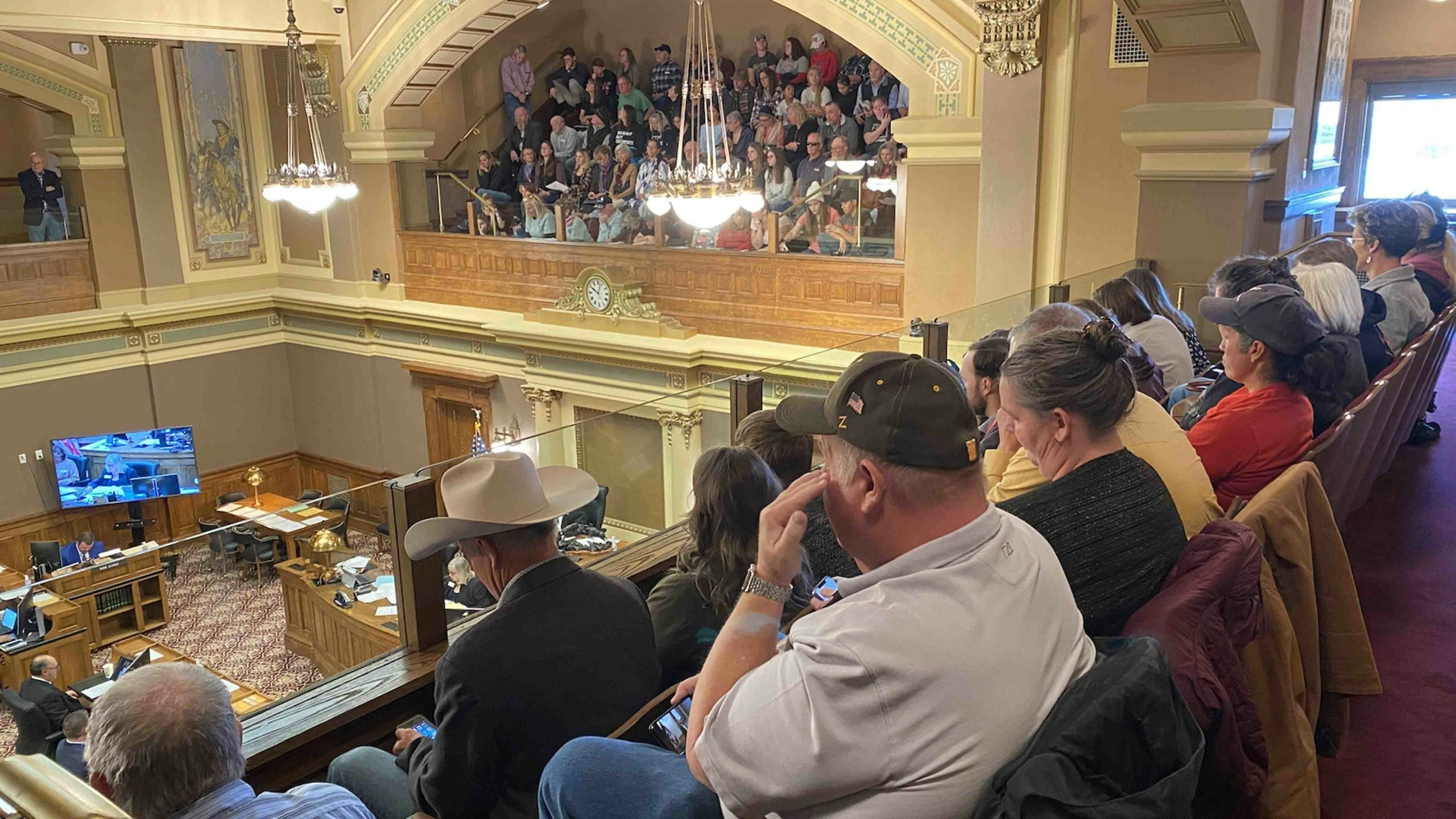A bill that would prevent the teaching of critical race theory in Wyoming won final approval from the Senate on Wednesday and sent to the House of Representatives.
Senate File 103 passed the Senate on a vote of 25-4.
The bill states that all schools and colleges that are supported in any manner by public funds shall not teach “divisive tenets often described as a critical race theory that inflames divisions on the basis of sex, race, ethnicity, religion, color, national origin or other criteria in ways contrary to the unity of the nation and the wellbeing of the state of Wyoming and its residents.”
Sen. Bo Biteman, R-Ranchester, told his colleagues during the floor debate that the bill does not limit what instructors can teach when it comes to dark events in history, such as slavery and the Holocaust, just that they cannot teach it in certain ways.
“The bill spells out what we’re not going to do when teaching history,” Biteman said. “Their instructional personnel may facilitate discussions and use curricula to address, in an age-appropriate manner, topics of sexism, slavery, racial oppression, racial segregation and racial discrimination.”
The bill was amended before the debate on Wednesday to add clarifying language about how children should be taught sensitive subjects, with the amendment stating that instruction on those topics and any supporting materials should be consistent with certain principles of individual freedom, such as the idea that no person is inherently racist, sexist or oppressive.
Sen. Chris Rothfuss, D-Laramie, voiced his opposition to the amendment during the debate.
“When I read [the amendment] now, it does start to sound like there’s an agenda,” he said. “No doubt many members of this Senate agree with every statement on this page, but that’s not our responsibility to determine what is truth. It’s scary when this Legislature gets to determine what is truth. It’s very much outside the bounds of inappropriate legislative action when we are dictating truth through statute.”
Biteman said he intent of his amendment was the opposite of critical race theory and added the reason the bill itself was brought forward to begin with was to stop teaching children that one race is inherently better than the other.
“If we allow critical race theory in our schools, Martin Luther King, everything he fought for is out the window if we allow that kind of poison in our schools,” he said.
The bill is co-sponsored by five senators, including Biteman, Anthony Bouchard, R-Cheyenne, and Lynn Hutchings, R-Cheyenne.
Critical race theory is described by some as proposing that racism is a social construct ingrained in American life and laws.
SF103 is the third CRT-related bill that has been proposed this legislative session. One that outright banned the teaching of the theory, House Bill 97, failed to win introduction last week.
The third bill, the “Civics Transparency Act,” which would require teachers to share online the materials they use to teach for review by parents and community, has been introduced and referred to the Senate Education Committee.
Last year, the U.S. Department of Education proposed guidelines for American history and civics education grant programs which encourage schools to use curriculum related to the New York Times’ 1619 Project (a journalism project that focuses on the consequences of slavery and contributions of Black Americans), critical race theory and the work of anti-racism activist and author Ibram X. Kendi.





